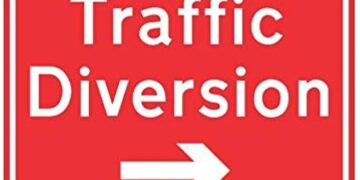By Ranmilowo Ojalumo
Operators in the haulage and logistics sector have called for total removal of duties on compressed natural gas (CNG) trucks and spare parts, as well as more infrastructure that will enhance smooth transition to the CNG initiative.
The operators are also calling for a special finance model from the financial institutions, saying the financial model for the LPG, LNG vehicles cannot work for the CNG vehicles.
They made the call on Wednesday at the 2024 edition of the Haulage and Logistics Magazine annual conference and exhibition (HAULMACE) held in Lagos with the theme ‘Embracing Gas initiative in Haulage and Logistics Industry”. The event is organised by Haulage and Logistics Magazine annually with the aim at providing a platform for advocacy and addressing pressing issues affecting the growth and development of the haulage and logistics industry.
In his address, the convener of the conference, Mr Alfred Okugbeni said since the beginning of 2024, with the government, the regulation of the downstream sector of the oil and gas industry, and the general attempts to make sure that the economy is working again, it became clear that there was need for an alternative way of moving cargo and people from place to place in Nigeria, hence the theme was selected for the conference.
The convener said the CNG has started picking up and it became clear that it was going to be the new focus if anybody was to survive the environment. The noted that transition into CNG is not just about the cost of doing business, but also about the cost of renewables in terms of sustainability. He noted that many companies and indeed many nations have started discussing the issue of sustainability because the world system has changed and the environments are becoming harder.
He said “We’re told that this year is the hottest year since we started measuring temperatures. This means climate change is real and this is the new normal, there is need for us to find a way to make sure that we manage our energy usage and energy sources, so the need to look at alternative source of energy became an imperative for us as a nation. In view of the fact that the cost of the normal fuel, the fossil fuel we are used to has gone very high and the need to transit into a more sustainable source of energy, there is need to look at the CNG and that is what we are looking at this year”, Okugbeni said.
In his address, the Keynote speaker, the Logistics Director of Lafage, Mr Osaze Aghatise call on truckers to not only embrace the CNG initiative but to scale up, saying scaling up should be the focus because CNG is the way to go and in scaling up the gas initiative. He pointed out that the CNG initiative has many benefits among which is sustainability and reduction in carbon dioxide (C02) emissions. He stated that transition to CNG is the right thing to do and it’s not whether or not we should do. “If you look at the logistics industry, the fleets that run on the road, in and out, and the number of emissions, as well as the way we pollute the environment, it will be silly of us not to make the switch to CNG and make it quick so that we can reduce CO2 emissions”, he said.
Speaking on sustainability the speaker said it is apt as business owners to always balance cost while trying to balancing on sustainability, noting that if business owner do not balance both, then adoption of whatever initiative will face more barriers, stating that switching to CNG is not only sustainable but also have cost benefit.
In view of the fact that the gas initiative to power truck is efficient, sustainable and reduce carbon dioxide emission, Aghatise wonder why many people are not embracing it or scaling up. According to him, one of the reason is the obvious limited supply infrastructure across the country. Although the government is putting policies in place that will enhance creation of infrastructure, he said it is still not enough, noting that financing has been a big barrier to the gas initiative.
He said “the appetite of banks towards scaling has to change quickly. I don’t see any reason why financing a green initiative should be the same as financing any other initiative. There has to be a differentiation in terms of financing which is one major barrier that we face today in scaling up on the CNG initiative. Terms should be tailored towards scaling this initiative. We cannot have a generic financing model for CNG truck, it can’t work. We need to have something that is completely different, that is tailor made towards scaling.
“You cannot stand alone as an organization doing your own thing and not looking for partners in the supply chain space. By quickly looking inwards to having your own supply chain internally is great but for a long term in the industry, it will not help in scaling up. Companies should come together”.
According to Aghatise, statistics has shown that about 70% of trucks coming into the country are on LPG /LNG and only about 30% are CNG trucks, saying many truck owners still want the LPG/LNG truck because it is about 30%to 40% cheaper when compare to CNG, insisting that the model of financing gas trucks needs to change.
He said “as industry leaders, we need to sit closely with the financing institutions to let them understand and even create the model for them. Because they may not fully understand the full value chain of how this plays out”, he said. He advised that truck operators need to change their sourcing model. He said sourcing trucks individually will not allow scaling. “We need to do a crowdsourcing approach in our sourcing model.
“We need spare parts, after sales, maintenance hubs that can support whatever scale that we want to push for. Even today with the diesel trucks, we still have spare parts availability issues. It is either the quality of the spare parts is not good or the quantity of the spare parts is not enough. It is something we need to look at holistically. It’s not a one way approach to drive the CNG initiative.
Notwithstanding the barriers, the keynote speaker insisted that vehicle owners, especially truckers did not only need to embrace the gas initiative but also need to scale up. “To embrace the gas initiative, we need to not only scale up alone, but scaling with all the partners and everybody in the value chain. One person cannot do it alone. Everybody in the value chain needs to be part of this process of scaling up. We need to collaborate more in scaling up”, Aghatise said.
While speaking on roadmap for the use of gas energy in the haulage and logistic sector, the Director General, National Automotive Design and Development Council (NADDC), Mr Oluwemimo Joseph Osanipin, who was ably represented by Dr Noah Omisanya, said the need to protect the environment had necessitated the need to embrace the CNG initiative.
He specifically said the emergency of the gas initiative is to reduce cost, save time, be convenient and to be environmentally friendly. He lamented that people have abandoned natural resources in the country over the years, stating that the gas reserve in Nigeria spans up to more than 200 trillion cubic meters. “Nigeria is ranked first in Africa with a reserve of 209 trillion cubic feet of gas. Therefore it is imperative that Nigeria must leverage on this natural gas resources and transform it to an energy that will drive the automotive wind”, the NADDC boss said.
According to him, the CNG conversion process involved modifying a vehicle to run on CNG as an alternative fuel, our PMS or diesel. While the country is using LPG, LNG before, he said it has been found out that the compressed natural gas, is far better than other ones in the deployment or powering vehicles.
“With the use of compressed natural gas, the green gas emission is reduced to the barest minimum, with CNG, we don’t have emission, we have a clean air and very cheap for us to use”, the NADDC DG said.
He added that the response to the high fuel price and environmental concern is part of the reason the council introduce the gas initiative, noting that the economic interest in it is huge. He said “an average retail price of 1 litre of PMS is about 1,050; but that of CNG, for its core, is a range of 230 to 250. It is cheaper, despite the high cost of conversion. The initial cost of converting a vehicle to run on CNG ranges from N1 million to N1. 2 million; but the minute we convert the vehicle to run on CNG, we will recoup that initial cost, and from the price itself, the gas is cheap at 230 Naira. The gas on its own is very light compared to ordinary air”
“When a gas is leaked out and you want to ignite it, it will not catch fire because it is lighter than ordinary air. As compared to our PMS, which is 280 degrees Celsius in an internal combustion engine, or in an environment whereby there is a leakage of petrol, for it to ignite, the temperature of that environment is about 280 degrees, the petrol will ignite. As compared to CNG, that is in the range of about 600 degrees.
He added that the council is doing a lot to ensure easy transition, noting that there are conversion centres now and more centres are on the way. He added that the council regulate the activities of conversion centre through accreditation, adding that the council is carrying out sensitization and awareness workshops. He disclosed that the council has also produced a handbook, adding that the council has created some training centres in about 21 states.
The panel discussants at the forum submitted that the CNG initiative is the way to go. While they charge truck owners to embrace it, they are calling on relevant authorities for more infrastructures across the country.
The General Manager, Operation, NNPC Retail Limited, Mohammad Dahiru said Nigeria has huge gas reserve, hence, transition to the gas initiative is inevitable and it will do the nation a lot of good. He disclosed that NNPC Retail Limited has created various gas retail stations for vehicles, adding that provision is being made for trucks.
On his part, the Chief Operating Officer, Transport Service Limited, Idris Akinsanya said road infrastructure is a serious issue currently CNG trucks because most roads don’t have gas retail stations, a situation he said will make haulage operators who use CNG trucks to reject some jobs in those roads where there are no gas retail station. He therefore call for establishment of more gas retail stations in all roads across the country. He maintained that the nation cannot continue with fossil fuel, insisting that there is need to protect the environment, hence the gas initiative is the way to go for haulage and logistics operators.
The General Manager, Logistic and Fleet, Tetracare Energy Group Limited, Engineer Abdulmujeeb Masud pointed out that CNG is safe and cost efficient. He however said there should have been massive provision of infrastructure before rolling out the initiative.
In view of the importance of the haulage and logistics sector to the nation’s economy, the Managing Director, Joza Global and Logistics, Mr. Emmanuel Ozaudu Usiakpor calls for removal of duty on CNG trucks. He urge the bank to create a new and appropriate finance model for the CNG truck financing, saying the model hat work for LNG truck cannot work for CNG truck. He also calls for creation of more infrastructure, especially refueling retail station for truck. He urge the government to give special attention to trucks, saying the haulage and logistic sector is the backbone of the economy.
















































































